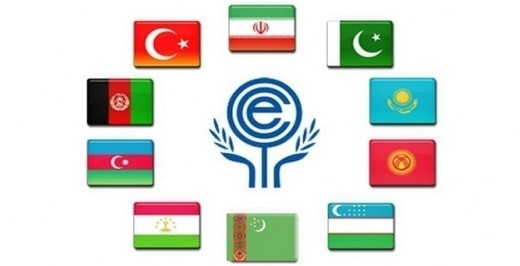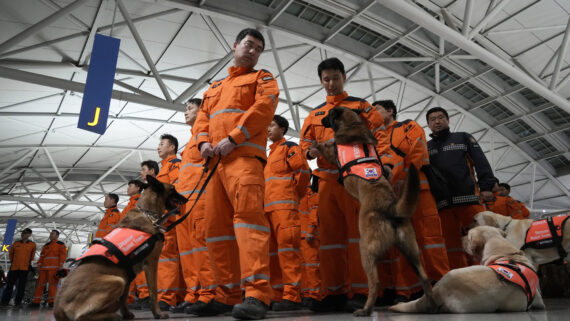Deportation from Turkey involves legal complexities and potential obstacles that individuals may encounter. This article highlights key legal challenges faced during deportation proceedings. It emphasizes the importance of due process and fair hearings, where individuals have the right to be informed, present their case, and challenge allegations. Legal challenges can arise from immigration status, documentation validity, and human rights considerations, ensuring compliance with international standards. Family and personal circumstances, along with procedural errors or inconsistencies, can also be grounds for legal challenges. Seeking professional legal assistance is crucial in navigating these challenges and exploring available legal remedies. Receiving a deportation order can be a distressing and life-altering event for individuals residing in Turkey. However, it is important to remember that a deportation order is not necessarily the final outcome. In certain circumstances, it may be possible to challenge or revoke the deportation order through legal means.
Revoking the deportation order from Turkey
Although receiving a deportation order can be a distressing and life-altering event for individuals residing in Turkey, it is important to remember that, in certain circumstances, it may be possible challenging or revoking the deportation order through legal means. Deportation is the formal removal of a foreign national from Turkey for violating an immigration law. An immigrant can be at risk of detention and deportation to their country of origin in several different scenarios.
Geting out of the detention facility
When someone is in an immigration detention facility, the most important thing to you might be getting them out. Make sure this is the wise thing to do, however – immigration court proceedings will move much more quickly if the person is detained, and there could be good reasons you’d want them to see a judge sooner rather than later. Most of the time, however, it’s better to get out of the detention facility and have an immigration judge hear the case at a much later date.
It is remarkable to underline that the Law on Foreigners and International Protection Law (No:6458) aims at stipulating ‘the principles and procedures with regard to foreigners’ entry into, stay in and exit from Turkey’. Therefore, the said Law is of utmost importance in regulating main standards and types for residence permit and required sanctions upon any infringement of such rules. The Law in question is available online here.
Types of Residence Permit in Turkey
It is important to note that Article 29 of the Law on Foreigners and International Protection Law (No:6 458) provides the following six types of residence permits:
- firstly, short-term residence permit,
- secondly, family residence permit,
- thirdly, student residence permit,
- fourthly, long-term residence permit,
- fifthly, humanitarian residence permit,
- and lastly, victim of human trafficking residence permit.
Deportation decision
It is essential to understand that a removal decision can be made either upon instructions of the Directorate General (the Presidency of Migration Management) or ex officio by the governorates. This decision is issued in respect of those foreigners listed below who/whose:
- are deemed to be removed pursuant to Article 559 of the Turkish Penal Code No 5237;
- are leaders, members or supporters of a terrorist organization or a benefit oriented criminal organization;
- submit untrue information and false documents during the entry, visa and residence permit actions;
- made their living from illegitimate means during their stay in Turkey;
- pose a public order or public security or public health threat;
- has overstayed their visa or the visa exemption period for more than ten days or, whose visas are cancelled;
- residence permits are cancelled;
- overstayed the expiry date of the duration of their residence permit for more ten days without an acceptable reason;
- are determined to be working without a work permit;
- breach the terms and conditions for legal entry into or exit from Turkey; i) are determined to have entered into Turkey despite an entry ban to Turkey;
- international protection claim has been refused; are excluded from international protection; application is considered inadmissible; has withdrawn the application or the application is considered withdrawn; international protection status has ended or has been cancelled, provided that pursuant to the other provisions set out in this Law they no longer have the right of stay in Turkey after the final decision.
- fail to leave Turkey within ten days in cases where their residence permit renewal application has been refused.
- (Annex: 3/10/2016-KHK-676/36 article) are evaluated as being associated with terrorist organizations which have been defined by international institutions and organizations.
In accordance with Article 52, foreigners may be removed to their country of origin or a transit country or a third country by virtue of a removal decision.
Competent authorities for deportation of foreigners
The Presidency of Migration Management under the umbrella of the Ministry of Interior and Migration Management under the relevant Governorship are primary Turkish national competent authorities engaging in residence permits and the violation of relevant rules.
Getting rid of removal decision for foreigners
There are very limited ways of getting rid of unintended consequences of a removal decision including entry ban. First: litigation application and second administrative application. With regard to the first method, undoubtedly a removal decision is a type of administrative action. The concerned foreigner, legal representative or lawyer has a right to lodge a case before the administrative court within 7 days as of the date of notification under Article 53. The judgment of the court shall be delivered within 15 days. Second, the acquisition of an annotated visa for work, education, research purposes or marriage or treatment reasons, the foreigner involved is allowed to re-entry to Turkey even before the expiration of entry ban.
Administrative detention for foreigners
According to Article 57, those for whom a removal decision have been issued, the governorate shall issue an administrative detention decision for those who;
- bear the risk of absconding or disappearing,
- breached the rules of entry into and exit from to Turkey,
- have used false or fabricated documents,
- have not left Turkey after the expiry of the period granted to them to leave, without an acceptable excuse,
- pose a threat to public order, public security or public health.
They are taken to removal centers by the same law enforcement unit that apprehended them. This decision can be appealed before the judge of the criminal court of peace.
Deportation process safeguards
Where a deportation order has come into force and the person has not yet been deported from Turkey, further representations made on the basis of human rights or protection grounds must be considered as a request to revoke a deportation order. You must consider those representations and decide whether or not to revoke the deportation order.
- Due Process and Fair Hearings: One of the fundamental rights in any deportation process is the right to due process and a fair hearing. Individuals facing deportation have the right to be informed of the reasons for their deportation, present their case, and challenge any allegations made against them. It is crucial to ensure that deportation proceedings in Turkey adhere to these principles and provide individuals with an opportunity to be heard.
- Immigration Status and Documentation: Deportation often arises from immigration-related issues, such as visa violations or illegal entry. However, in some cases, individuals may contest the validity of the immigration status or the documentation used as grounds for deportation. Legal challenges may focus on proving the existence of valid documentation, correcting any administrative errors, or demonstrating a legitimate basis for remaining in the country.
- Human Rights Considerations: Deportation must comply with international human rights standards and treaties to protect individuals from undue harm or persecution. Legal challenges may arise if there are concerns about violations of human rights, such as the risk of torture, inhumane treatment, or violations of the principle of non-refoulement. In such cases, individuals may argue that deportation would place them in a situation that contravenes their fundamental human rights.
- Family and Personal Circumstances: Family and personal circumstances can play a significant role in deportation cases. If an individual’s deportation would result in the separation of family members or cause extreme hardship, legal challenges may focus on demonstrating the compelling humanitarian grounds to prevent deportation. Additionally, individuals may argue that their integration into Turkish society or their contributions to the community should be considered as mitigating factors against deportation.
- Procedural Errors or Inconsistencies: Legal challenges can also stem from procedural errors or inconsistencies in the deportation process. This may include failures to follow prescribed procedures, inadequate notice, or errors in the gathering or presentation of evidence. Challenging such errors or inconsistencies can provide a basis for contesting the Options and legal avenues available to overturn a deportation order.
Potential legal challenges
- Administrative Appeals: The first step in challenging a deportation order is to explore administrative appeal processes. This typically involves submitting a formal appeal to the relevant authorities within a specified timeframe. The appeal should present strong grounds and compelling evidence to demonstrate that the deportation order was issued in error or is not justified under the circumstances. It is crucial to consult with an experienced immigration lawyer to ensure that all necessary documentation and legal arguments are properly prepared.
- Judicial Review: If the administrative appeal is unsuccessful or not available, individuals can seek judicial review of the deportation order. This involves initiating legal proceedings before the administrative courts, challenging the legality and validity of the deportation order. The court will assess whether the deportation order was issued in compliance with applicable laws, regulations, and procedural requirements. Skilled legal representation is essential during the judicial review process to present a robust case and navigate the complexities of Turkish immigration law.
- Human Rights Considerations: Human rights considerations can play a pivotal role in challenging a deportation order. Individuals facing deportation may argue that their removal would violate their fundamental human rights, such as the risk of torture, inhumane treatment, or violations of the principle of non-refoulement. In such cases, it is crucial to gather substantial evidence and expert opinions to substantiate the potential human rights violations and present a compelling case before the relevant authorities or courts.
- Changes in Circumstances: A change in circumstances since the issuance of the deportation order can provide grounds for revocation. For example, if the conditions that led to the deportation order no longer exist, or if there have been significant changes in personal or family circumstances, it may be possible to request a review and revocation of the order based on these new developments. Consulting with an immigration lawyer can help assess the viability of such arguments and guide individuals through the necessary legal procedures.
Professional legal assistance
Receiving a deportation order from Turkey does not necessarily mean an individual’s options are exhausted. It is important to be aware of the potential legal avenues available to challenge or revoke the deportation order. Seeking professional legal advice and representation is crucial in navigating the complexities of the Turkish immigration system, understanding the specific circumstances of the case, and building a strong legal strategy. By exploring administrative appeals, pursuing judicial review, considering human rights considerations, or demonstrating changes in circumstances, individuals can increase their chances of successfully revoking the deportation order and securing their right to remain in Turkey.
It is important to note that each deportation case is unique, and legal challenges will vary depending on the specific circumstances. Consulting with an experienced immigration lawyer in Turkey is essential to assess the individual merits of a case and provide tailored legal advice and representation. Bicak specializes in immigration law and provides expert legal assistance to individuals facing deportation orders in Turkey. Contact us to schedule a consultation and discuss your options for challenging or revoking a deportation order.
 English
English Türkçe
Türkçe Français
Français Deutsch
Deutsch










Comments
No comments yet.